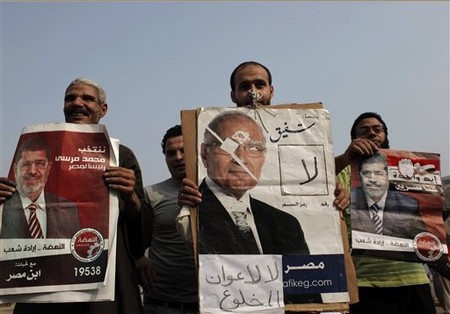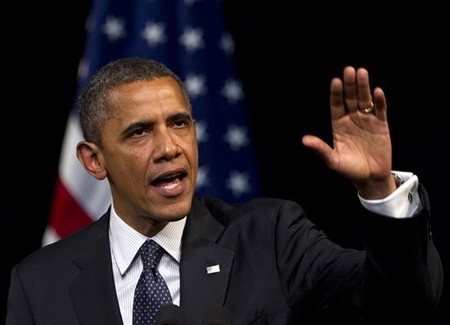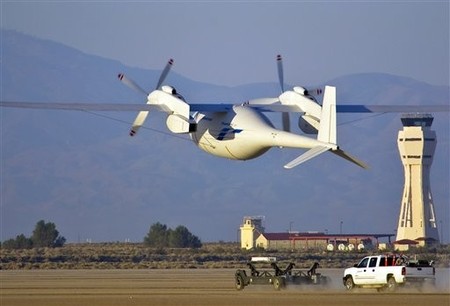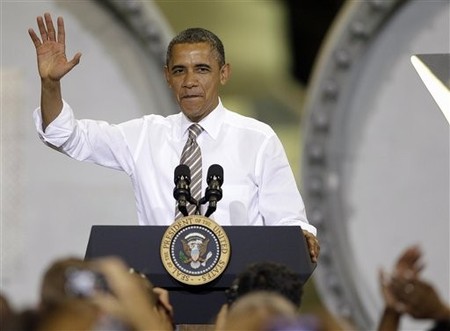Jonathan Tobin says I've got it all wrong when I argued that President Obama shouldn't be chided for disagreeing with Israel in public:
But Scoblete finds Romney’s promise not to conduct disagreements with Israel in public even more absurd. To his way of thinking, Romney’s pledge to do the opposite of Obama in that respect is not so much silly campaign rhetoric but represents a view of the American people as children. He believes disputes between the two allies should be carried on in the open much the same way the president’s argument with Canada about the Keystone pipeline has been handled. But in making this point, it is Scoblete who is making a mistake, not Romney. The pivotal audience for the administration’s spats with Israel is not the American people, though many if not most of them are distressed by the president’s propensity for demonstrating his animus toward Jerusalem. It is the Palestinians who have drawn the wrong conclusions from Obama’s determination, as was often expressed at the beginning of his administration, to change everything George W. Bush did, especially his closeness with Israel. And it is the Arabs’ misinterpretation of the perception of a shift in U.S. policy that has effectively killed the peace process on Obama’s watch.
To reitirate what I said in the
original post, I don't think this is a principle reserved for disagreements with Israel alone, but any U.S. ally. And I've
said before that I think the administration has made a hash of the peace process, but I would disagree with Tobin's assertion that the pivotal audience here is the Palestinians. It's actually the American people. The idea that the American people should be kept in the dark about disagreements, particularly serious ones, on foreign policy matters with allies absent the most stringent of national emergencies strikes me as wrong-headed. The Palestinians are free to draw their own conclusions, but ultimately the American people need to make informed decisions about public policy. They can't do so without information.
Did President Obama mishandle the peace process negotiations? Yes. Does that mean the administration was wrong to let differences of opinion surface publicly? I don't believe so. In fact, it's very difficult to see how those differences would not ultimately come to light. Both Israel and the U.S. are democracies with a free media. Any deep difference of opinion between the two governments on critical issues such as settlements was bound to leak out to the press. This is a good thing.
Think of it this way: Tobin has been a vocal critic of the Obama administration's approach to Israel. How did he arrive at this judgement? The ether? Inference? Obviously not: he read about it in the media. If Obama had adhered to the "Romney Doctrine" and managed to button up any and all disagreements with Israel, how would Tobin know Obama's policies were so misguided? Obama would have stealthily harbored his "animus" toward Israel and none of the country's defenders would have been the wiser. But thanks to these public spats, he's been exposed.
In fact, what Tobin (and Romney) is really suggesting is not that the U.S. and Israel can't disagree - it's that they can't have any significant disagreement. Because in practice, only the most inconsequential disagreements between two democratic allies can be kept under wraps for very long. Serious disputes, such as the one that erupted over the settlement freeze, are bound to filter into the public's view. I would argue that we are better off knowing that such disputes exist so we can judge the positions accordingly.
I brought up the Keystone XL pipeline as an area where two allies can disagree in public but there's a better analogy I neglected. During World War II the U.S. and Britain fought bitterly - in public and private - over India's colonial status (and colonialism in general). The U.S. was opposed to British imperialism and pressed the UK to grant India its freedom, something the UK had been loathe to do. This dispute enraged Winston Churchill and caused tension between the two allies, but ultimately didn't irreparably damage the war effort, the long term relationship between the UK and U.S., or their respective publics.
Again, this isn't a perfectly analogous situation, but it demonstrates that even during the most existential of conflicts, close allies can deeply, publicly, disagree.











